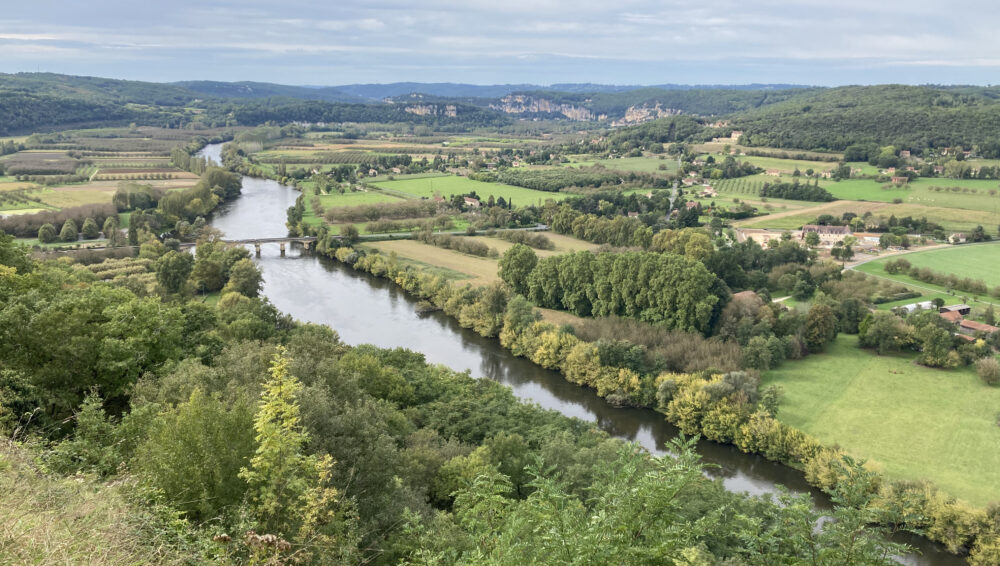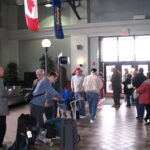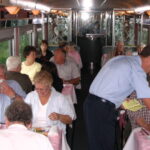A Special French Village.
My wife and I were told about Domme by a dear friend. Specifically, she raved about the view and urged us to request that view when we booked our room at L’Hotel Esplanade.
“But you have to book early,” she said, “because there are only 14 rooms in the hotel and only half have the wonderful view.”
Domme is a medieval village—aren’t they all in those parts?— but it was built on a promontory some 500 feet above the Dordogne River Valley. It’s a spectacular view, in large past because it not as high as most. As a result, you can see farmers plowing their fields and an occasional car crossing the river not that far below.

I was instantly smitten by the hotel and its charming view and have been back several times. In fact, as I sat down for dinner in the dining room on my most recent visit, Madam Sofie, the gentle lady who operates the hotel, said, “That couple having dinner at the table next to you . . .” (They had finished their meal and were heading for the door.) . . . They are from Maui!”
Of course the coincidence was staggering. Maui is, after all, twelve time zones or literally half the world away and as I stared after the two people in amazement, the man turned, waved, and said, “Baldwin High School, Class of 68.” They checked out early the next morning and I never had the chance to find out how they happened to choose Domme as a destination. I’d like to think they might have been attracted to this charming little village by some-thing I had written about the place.
In a striking contrast to the tranquility of this charming village, not more than 50 feet from the hotel’s front door is a granite memorial, serving as the focal point in the middle of the town square. Engraved on the memorial are a total of 19 names in three columns: Deported . . . Killed in Combat . . . and Shot. My best guess is that “Deported” refers to men who were conscripted laborers sent to Germany to work in the factories making weapons of war for the Germans. The fact that their names are on this monument would indicate that none of them survived their German experience. It’s also my guess that while the accepted translation of the French word fusile is “shot”, a more accurate translation in this context would be “executed.”
I have no doubt there are monuments similar to this one in every French town or village that was occupied by the Germans during World War Two . . . collectively, a sad commentary on man’s inhumanity to his fellow man.
Within a radius a couple of dozen kilometers, Domme has a lot to offer. There are several small restaurants, typically consisting of a half-dozen tables located in the main room of a farmhouse—the husband doing the cooking, the wife waiting on the tables. There are some pre-historic caves nearby with ancient drawings on the walls that are carefully reserved. For me, however, the attraction is the relaxed, almost serene, feeling one gets from a leisurely drive through that lovely, tranquil valley.



